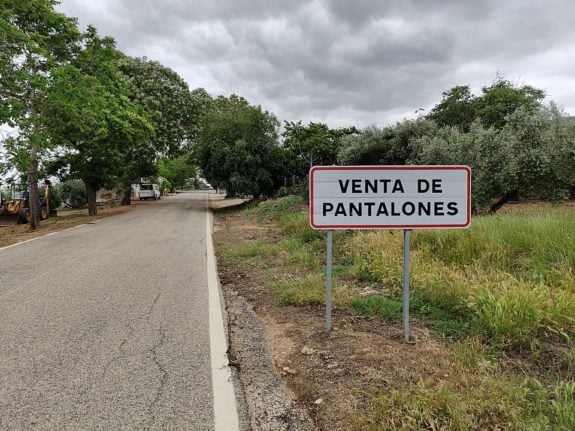Castrillo Matajudíos
Let’s start in Burgos province with the controversially named Castrillo Matajudíos, or ‘Jew Killer Town’ which after many years of discussion did finally rid itself of its dark past by changing its name to the less offensive as Castrillo Mota de Judíos, ‘Hill of Jews’.
The town changed its name in 2015 after seeking approval from the 56 villagers who call it home.
Matagorda
This village in Almería seems, in name alone at least, to have something against those considered to be carrying an extra few pounds. It translates in English as ‘Kill Fat Lady’.
Villapene
This Galician village whose name translates to ‘Penisville’ has 200 inhabitants and became famous when its road sign was stolen and photographed at a wedding. Its full official name is Santa María de Vilapene, which is only marginally better. Or perhaps not.
Venta de Pantalones
This tiny village near Jaén in south-central Spain is presumably the perfect destination for travellers who are a little short in the pants department because its name translates as ‘Selling Trousers’ or ‘Trousers Stall’.
Malcocinado
You might want to think twice before stopping here for a meal as the name translates as ‘Poorly cooked’. This municipality of 500-odd residents in Badajoz, Extremadura, also shares its name with a word meaning offal unsuitable for human consumption.
Poo
Well no translation needed for this one, the name of this small coastal town in Asturias is really only amusing to English speakers. Anyone up for spending the day on Poo Beach? (It really is much lovelier than the name sounds).
Cabezas Rubias
Fewer than 900 people live in this village in Huelva, southern Spain, the name of which translates as “Blonde Heads” but the census makes no mention of their hair colour, unfortunately.
El Purgatorio
The name suggests that a visit to this town in Murcia and you’ll find yourself in ‘Purgatory’, but travel some 30 km north and you’ll reach Los Infiernos (translating as hells), which is surely a worse place to end up.
Guarromán
You could be forgiven for thinking that people who live in this town of 2,724 people in Jaén do not care much for personal hygiene for “Guarro” translates as ‘Filthy’. Therefore, Guarromán sounds like a superhero whose special power is soiling things.
In fact, the origin of the name comes from the Arabic Wadi-r-rumman, named after a river that runs through it.
Melón
This municipality named after a ‘melon’ is in the northwestern Galician province of Ourense is by no means famous for its fruit production.
Cenicero
If you’re wine tasting through La Rioja and fancy a cheeky smoke break, this municipality named ‘Ashtray’ could be a suitable pitstop.
La Ampolla
Pop by ‘The Blister’ in Tarragona, a quaint coastal town that doesn’t merit its pain-evoking name.
Codos
Not far from Zaragoza is a village named after arguably one of the most underrated parts of the body: the ‘elbows’.
El Cubo de la Tierra del Vino
Sounding a bit like the name of a Terrence Malik film is ‘The Bucket of the Wine’s Soil’ in Zamora.
Villalibre de la Jurisdicción
If ever there was a truly lawless town in Spain, it’s this one in León province, as it’s name is ‘Town Free of Authority’.
Uña
You may cringe at the sight of the road signs when you drive through Uña in Cuenca province, named after a fingernail, or a toenail for that matter.
Alquerías Del Niño Perdido
Could it be that ‘Workhouse of the Lost Boy’ in Castellón province was named after Dickens’ Oliver Twist? Either way, quite an eerie name.
Consuegra
Just as capable of making your hair stand on end is ‘With Mother-In-Law’ in Toledo, by far the most famous weirdly named place on this list as its windmills-lined landscapes are exceptional.
Peligros
Beware of taking a wrong turn into Peligros in Granada. The clue is in the name: Dangers!
Adiós
A warm welcome for strangers is not guaranteed at this 183-inhabitant village in Navarre, northern Spain, if its name is anything to go by.
Buenas Noches
In a similar vein but all the way down in the southern province of Málaga is the village of ‘Good Night’, with only 50 inhabitants. Certainly sounds like a sleepy little place.



 Please whitelist us to continue reading.
Please whitelist us to continue reading.
Member comments